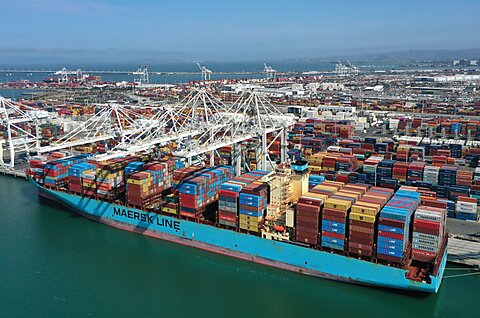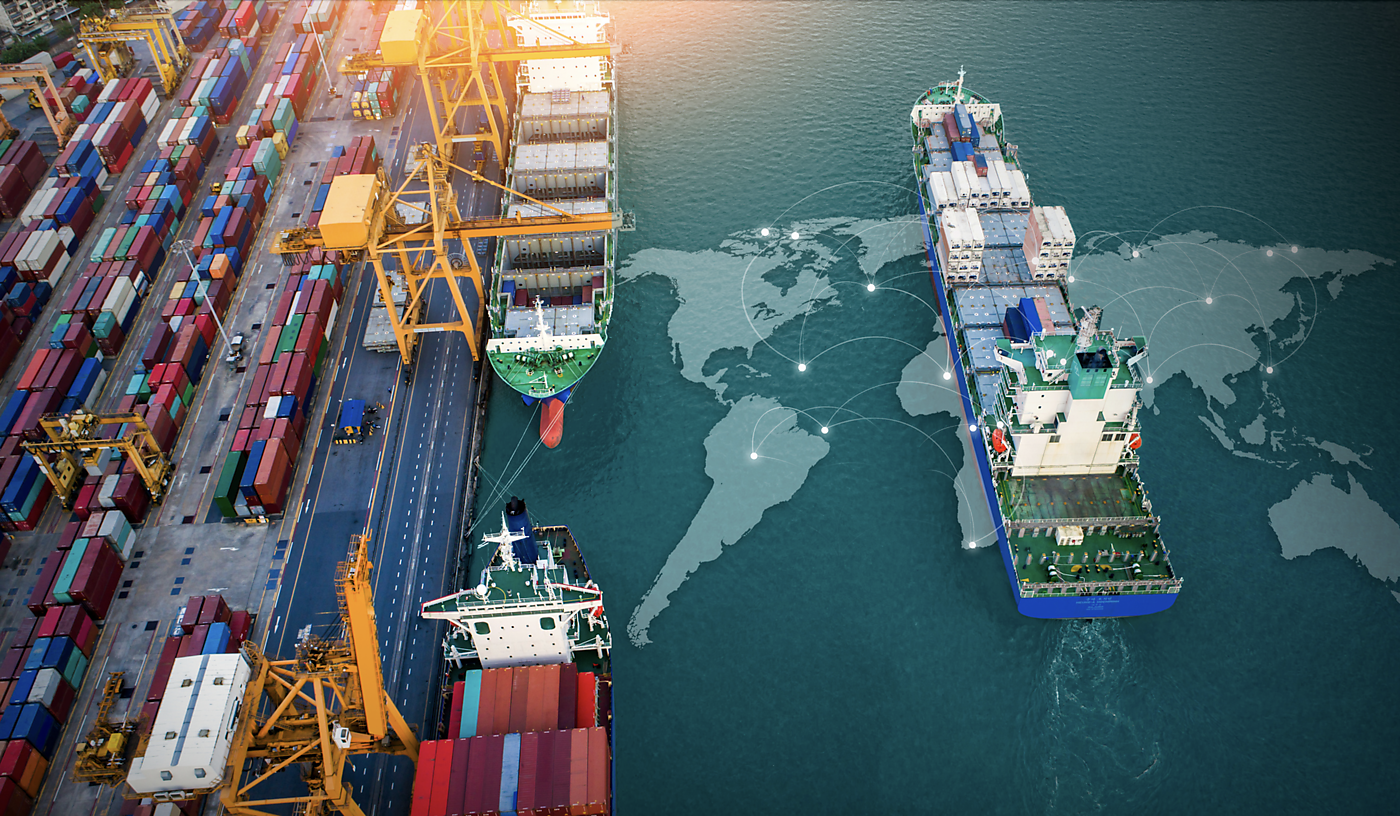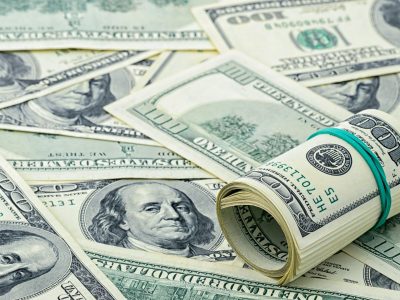
The 2024 Republican Party platform, reflecting the protectionist views of presidential nominee Donald Trump, notes that “our trade deficit in goods” is over $1 trillion a year and says it is committed to “rebalancing trade” with foreign countries. Apparently, an imbalance—Americans buy more in imports than they sell in exports—is bad and must be fixed.
This is a fallacious claim because trade deficits don’t really matter—not between countries and not between you and your local grocery store.
When politicians and special interest groups—the latter usually domestic manufacturers averse to competition—talk about trade deficits, they imply that US businesses and workers are being hurt. Vice presidential candidate J.D. Vance, for instance, said in a July 30 speech, “We believe that a million cheap, knockoff toasters aren’t worth the price of a single American manufacturing job.”
What he means is that if Americans choose to buy one million toasters from foreign manufacturers because they are less expensive than US-made toasters, it isn’t worth it; one US job trumps consumer freedom.
In another speech, Vance said, “We’re done sacrificing supply chains to unlimited global trade, and we’re going to stamp more and more products with that beautiful label, ‘Made in the U.S.A.’” The implication is that a US-made product or service is better than a foreign good and “unlimited global trade” is bad. Never mind Sony TVs, Toyota cars, Columbian coffee, French wine, or Swiss chocolate.
In their criticism of global trade and imports, Vance and the GOP platform don’t mention several important things: the American consumer, private property, and the freedom that people should enjoy to voluntarily exchange goods and services. Some folks call this liberty and the pursuit of happiness: people freely choosing to buy and sell what they want, not what the government dictates.
In The Wealth of Nations, the great economist Adam Smith wrote, “If a foreign country can supply us with a commodity cheaper than we ourselves can make it, better buy it of them …. In every country it always is and must be the interest of the great body of the people to buy whatever they want of those who sell it cheapest. The proposition is so very manifest that it seems ridiculous to take any pains to prove it; nor could it ever have been called in question had not the interested sophistry of merchants and manufacturers confounded the common sense of mankind. Their interest is, in this respect, directly opposite to that of the great body of the people.”
Simply, it is in everyone’s interest to get the best deal. This applies to both the buyer and the seller who voluntarily engage in an exchange where each feels he is benefiting. If American consumers and businesses end up buying more goods from foreign manufacturers than they sell to foreign consumers, resulting in a trade deficit, so what?
“American citizens and firms deal with partners all over the world,” reports Cato adjunct scholar Daniel Griswold. “There is no rational economic reason why Americans should be expected to sell exactly the same value of goods and services to people in a particular foreign nation than they buy from them.”
Trade deficits or surpluses will always occur and will vary by product and from country to country. Keep in mind, you may buy lots of things from Amazon or Whole Foods yet they never buy anything from you. That’s a huge trade deficit on your end. But it does not matter because both parties benefited. The same economic relationship exists on the international level.
As the libertarian economist and historian Robert Higgs explains, “People—individuals, firms and other organizations, and governments—trade in order to improve their economic condition. Whether they trade with people inside or outside the USA has nothing to do with economics or human well-being. … Nations as such don’t gain or lose from trade; only individual traders do. If the trades into which these people voluntarily enter entice them by the prospect of mutual gain, it simply cannot be the case that the sum total of their transactions [a trade deficit or surplus] amounts to a bad deal.” (Emphasis added.)
When Trump claims that trade deficits hurt the United States, he ignores the US consumers and businesses that engage in those trades (imports) for mutual gain. Their interests apparently don’t matter. But if Americans want to buy toasters or washing machines or steel from China, for instance, why should the government try to stop them? The government only does so, as Adam Smith said, because of “the interested sophistry of merchants and manufacturers” who have “confounded the common sense of mankind.”
The merchants and manufacturers in question usually are the large domestic businesses and special interests (lobbyists and unions) who want to dominate the US market and keep competition out. They lobby Congress and the White House to protect them from foreign competitors. When they succeed, the government places tariffs (and other prohibitions) on selected imports, which are nothing more than taxes that are passed onto consumers. Thus, Americans pay higher prices for goods to help keep selected US businesses “protected” from the marketplace. The federal government gets the tax revenue.
For instance, a 2024 report by the Cato Institute, “Separating Tariff Facts from Tariff Fictions,” found that the 2018 tariffs on imported foreign goods “cost US consumers up to over $4 billion per month in additional taxes and deadweight loss (or lost income).” As an example, the Trump administration’s “tariffs on washing machines resulted in an aggregate increase in consumer costs of more than $1.5 billion,” noted the report.
Protectionists rarely talk about things like that. Nor do they like to discuss America’s trade balance when you include not just “goods and services” but also investment income and “unilateral transfers,” such as remittances and foreign aid. As Dan Griswold wrote, “the total outflow of dollars each year from the United States to the rest of the world is matched by an equal inflow of dollars from the rest of the world to the United States. … Dollars spent on imported goods and services return to the United States, if not to buy US goods and services, then to buy US assets in the form of an inward flow of investment.”
In other words, if you measure the value of US exported goods and services vs. imported goods and services, there may be a deficit. But if you include “all the dollars that flow into and out of the United States each year, the accounts are always balanced,” said Griswold. Contrary to protectionist claims, there is nothing to “rebalance.”
“This net inflow of investment funds to America balances out the trade deficit,” said Prof. Donald J. Boudreaux, co-director of the Program on the American Economy and Globalization at the Mercatus Center. “Because investing is every bit as much an economic activity as is buying (importing) and selling (exporting), when investing is included in the economic picture—as it should be—the existence of a trade deficit signals neither decline nor imbalance.”
Moreover, that investment in the US stimulates the economy in myriad ways and creates jobs. When the US consistently attracts “a disproportionately large share of investment funds from around the world, [it] can hardly be said to be on the decline or unbalanced,” said Boudreaux. Nonetheless, the protectionists ignore this reality.
If you believe in private property and that individuals should be allowed to buy and sell whatever they want—at local shops, among states, online, and from foreign businesses (Honda cars, anyone?)—then you know that all trade is good. It benefits the parties involved and brings people closer together.
You also realize that complaints about trade deficits, imbalances, and protection from foreign goods are nothing more than the “sophistry of merchants and manufacturers” and politicians who seek to confound “common sense,” whose “interest is opposite to that of the great body of the people”—the American consumers.
Ignore the charlatans. Pursue your happiness.













